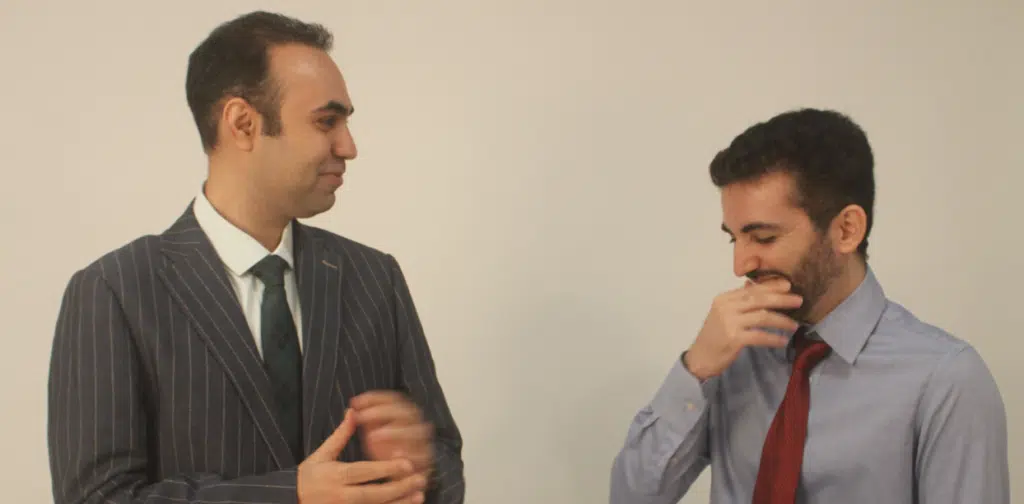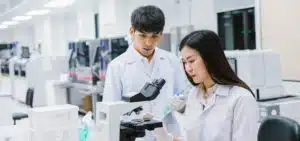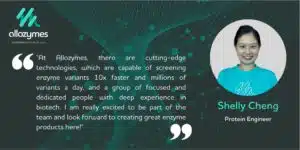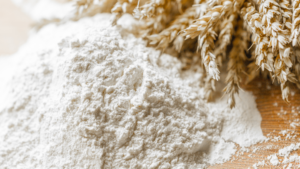To celebrate this milestone, we met with our founders to reminisce about the story of Allozymes and talk about what is in the pipeline of our growth.
Behind every biotechnology business is years of research and constant innovations. Through hardwork, passion, and an innovative vision, we have surpassed our second anniversary of Allozymes with exciting achievements around sustainable solutions through enzyme engineering and our revolutionary technology. In the past two years, our technology has advanced in accuracy and capacity, going from a POC in 2021 to semi-automated hardware with 99.7% accuracy in 2022. We have also partnered with some of the largest global food and feed, enzyme engineering companies, accelerating sustainable business growth.
We remain strong in our mission – delivering sustainably produced ingredients at scale – and we are more than excited for the journey ahead, where we improve the quantity and quality of the enzymes produced to serve our customers and the world.
- Tell us more about you and your entrepreneurship journey!
Both Peyman Salehian, PhD; and Akbar Vahidi, PhD; grew up in Iran, and chose the garden city for their PhD right here at the National University of Singapore. They reflected on their hometowns, sharing,
“Our hometown was surrounded by nature and art that has a special place in us, which inspires the art that is the creation and curation of special custom enzymes to generate solutions to preserve the beautiful nature that surrounds us.”
Their passionate entrepreneurial story has been filled with ups and downs. Inspiration, problem-solving mindsets, and thick skin have kept them motivated in making an impact on the biocommunity.
“Looking back, we took a leap of faith in starting Allozymes to solve real world problems and we are thrilled with the progress we have made. Looking forward, we are working towards expanding our customer base worldwide, improving the efficiency of our technology, increasing funding, and attracting more like-minded talents into our company.”, said Peyman.
- What inspired the creation of Allozymes?
Peyman: “The food we eat, the dyes in our clothes, the fabric we wear, and the chemicals we use. Almost everything around us is manufactured. However the unsustainable manufacturing practices are harming our environment, and contributing to climate change. We wanted a biotechnological solution towards more sustainable manufacturing practices. Nature has provided us with enzymes, which are tiny yet powerful biological workers. We wanted to engineer the natural enzymes, at scale, to perform the manufacturing process, so we wouldn’t have to rely so heavily on nature for their production, which helps us to save the planet.”
Biological manufacturing reduces waste, provides upcycling alternatives, reduces harmful byproducts, and produces final products that serve us better. It is this sustainable manufacturing process that we hope to achieve and advocate for.
- There are other companies that work on enzyme engineering. How is Allozymes different from them?
Akbar: “Our past customers have come to us with their pain points or bottlenecks in their current manufacturing process and we relieved their pains with our custom-engineered enzymes. At Allozymes, our miniaturized microfluidics technology allows up to one million enzymatic reactions per day. We can even incorporate different biological conditions such as pH and temperature to better suit the local environment of the manufacturing process.
Along with the custom-made assays, we are capable of screening enzymes 1000x faster than any present screening technology while being 10x more cost effective in enzyme engineering. With this speed and efficacy, our customers can scale up the biomanufacturing process with enzymes at a lower cost and faster time to market.”
- How did the name Allozymes come about?
“Allozymes stands for “All of enzymes” which represents the flexibility of our technology towards enzyme classes and using custom-made enzymes for our customers.”, said Peyman.
“Allozymes also have a technical definition – variants of enzymes!”, added Akbar.




